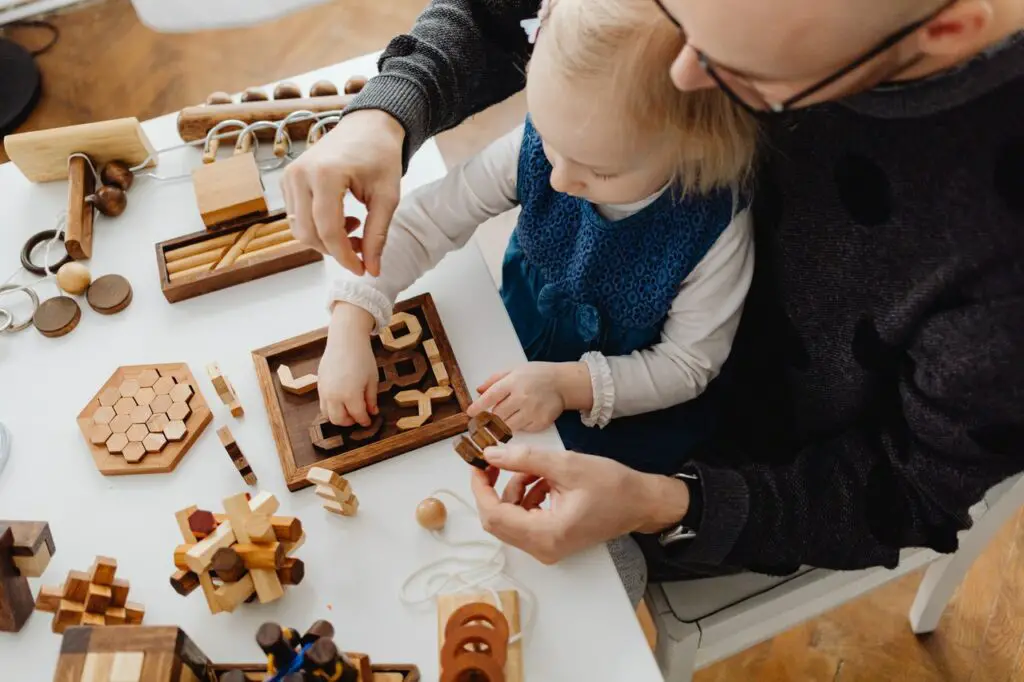What Are Educational Toys? Essential For Child’s development!

Table of Contents
What Are Educational Toys?
This is a question that many parents ask as they search for the perfect toy for their child. The answer to this question can be a little bit confusing because there is no one definition of an “educational toy.” In general, though, we can say that educational toys are toys that help children of all ages to learn and develop new skills.
There are many types of educational toys today, from board games to science kits to construction sets. So how do you know which one has the best educational value for your child? Keep reading to find out!
What Are The Benefits Of Educational Toys?
When it comes to educational toys, the benefits are vast. Not only do they help to stimulate a child’s mind, but they also promote learning and development.
Educational toys come in a wide range of forms, from simple puzzles to more complex games and activities. And while they are often used in classrooms or therapy sessions, they can also be enjoyed at home.
Intellectual Development
One of the main benefits of educational toys is that they help promote intellectual development. By playing with these types of educational toys, children learn to problem-solve, think critically, and develop their memory and concentration skills.
Creativity and Imagination
Additionally, educational toys can also help to encourage creativity and imagination. As children explore and experiment with different features and functions, they learn to think outside the box and come up with new ideas.
Motor Development
In addition to cognitive development, educational toys also promote motor development. Many of these toys require children to use their fine motor skills to play, which helps improve hand-eye coordination, agility, and strength.
Additionally, some educational toys can also help children develop gross motor skills such as balance and coordination.
Emotional Development
Finally, educational toys are also beneficial for social and emotional development. Children learn to negotiate, take turns, share, and cooperate with others through play. They also develop important communication skills such as listening and speaking. Additionally, playing with educational toys can help children feel more confident and self-assured.
So, as you can see, there are many benefits to educational toys.
What Types Of Educational Toys Are Available?
As we mentioned before, there is a wide range of educational toys available on the market. Some of the most popular types include:
Puzzles
Puzzles are a great way to help children develop problem-solving skills. They also promote concentration and memory development.
Board Games
Board games often require players to think strategically and plan ahead. They also promote social and emotional skills such as communication and cooperation.
Construction Sets
Construction sets such as LEGOs or K’NEX help children develop fine motor skills and spatial awareness.
Science Kits
Science kits provide an opportunity for children to learn about different concepts in a hands-on way. They also promote critical thinking and problem-solving skills.
Arts and Crafts
Arts and crafts kits help children develop creativity and imagination. Additionally, many arts and crafts activities require fine motor skills.
Musical Instruments
A Five-year USC study has found significant differences between kids who learned to play instruments and those who didn’t. They concluded that studying music accelerates brain development, particularly in the brain’s area that is responsible for language development, processing sound, reading skills, and speech perception.
Sensory Toys
Sensory toys are great educational toys for kids of all ages. They stimulate the child’s senses and help develop their sensory perception, elevate their sensory awareness, develop sensitivity to the environment, learn about it, and deepen their relationship with it. Therefore, sensory play is essential, mostly for young children but not only!
Pretend Play
Pretend play is also known as an imaginative play and allows children to play characters they see in their immediate environment (parents, siblings, and educational characters) or play characters and heroes they meet in books and movies. Children can revive within them the character they meet outside of them and give it their boundless interpretation! Their fertile imagination is the ruler in the realm of the game, and they experience the capacity to build reality with the power of the imagination!
How To Choose The Right Educational Toy For Your Child
- First, consider your child’s age and stage of development. Babies and toddlers will need different kinds of toys than older kids.
- Second, think about what kinds of skills you want your child to develop. Choose the right toys that encourage activities like problem solving, creative thinking, or fine motor skills.
- Third, consider your child’s interests. If your child loves animals, look for toys that teach about different species or provide opportunities to care for virtual pets.
By keeping these things in mind, you can choose an educational toy that is both fun and beneficial for your child!
How Do Educational Toys Help Child Development?
Most parents want their children to have as many opportunities as possible to succeed in life, and one of the best ways to help them reach their full potential is to provide them with educational toys.
These toys are designed to stimulate young and curious minds and help children develop important skills such as problem-solving, fine motor skills, and language development.
While there is no guarantee that educational toys will turn your child into a genius, research has shown that they can positively impact a child’s development.
So if you’re looking for a way to give your child a head start in life, consider investing in quality educational toys.
There are a few key ways in which educational toys help child development:
Cognitive Development: Educational toys help children learn about the world around them. They also promote critical thinking and problem-solving skills.
Language Development: Many educational toys encourage language development by providing opportunities for children to practice speaking and listening. Additionally, some toys can help children to learn new words.
Physical Development: Many educational toys require the use of fine motor skills. Additionally, some toys can help children to develop coordination and balance.
Conclusion
Educational toys are a great way to help children develop essential skills. When choosing an educational toy, consider your child’s age, interests, and the skills you want them to develop.
With so many options available, we’re confident you’ll find the perfect toy for your child!
FAQ’s
Here are some frequently asked questions that will help you choose the right one for your kid.
-
What Are The Best Educational Toys For Toddlers?
For toddlers, the best educational toys are those that help them learn about basic concepts like shapes, colors, and numbers. Try to find toys that can be used in multiple ways so they can grow with your child. Building blocks, wooden blocks, shape sorters, and simple puzzles are all good choices.
-
Do Educational Toys Have To Be Expensive?
No, educational toys don’t have to be expensive. There are plenty of affordable options available that can still provide your child with valuable learning experiences. However, keep in mind that some of the more high-tech or elaborate toys may come with a higher price tag.
-
What Is The Difference Between An Electronic Toy And A Non-Electronic Toy?
The main difference between an electronic and a non-electronic toy is how they work. Electronic toys usually have some form of digital display or require batteries to operate, while non-electronic toys are typically powered by manual action from the child.
Both electronic and non-electronic toys can have educational purposes, but electronic toys often offer more features and interactive elements.
-
What Are The Benefits Of Wooden Toys?
Wooden toys are classic and timeless, and they can offer a more natural look and feel than plastic toys. They’re also generally sturdier and less likely to break, making them a good choice for kids who are tough on their toys. Many wooden toys are handcrafted with care, so you may be able to find unique or one-of-a-kind pieces.
Read also:
- The Importance of Role Play In Child Development
- Best Toys to help Toddlers Talk – Speech Development
- Your Toddler Throws Toys Instead of Playing? Here’s Why
- Best Wooden Play Dough Tools – Playdough Toys
- Best Wooden Balance Board for Toddlers and Kids
- Best Bouncy Toys for 1-Year-Olds
- Baby Walker vs. Baby Jumper – Which is better?
